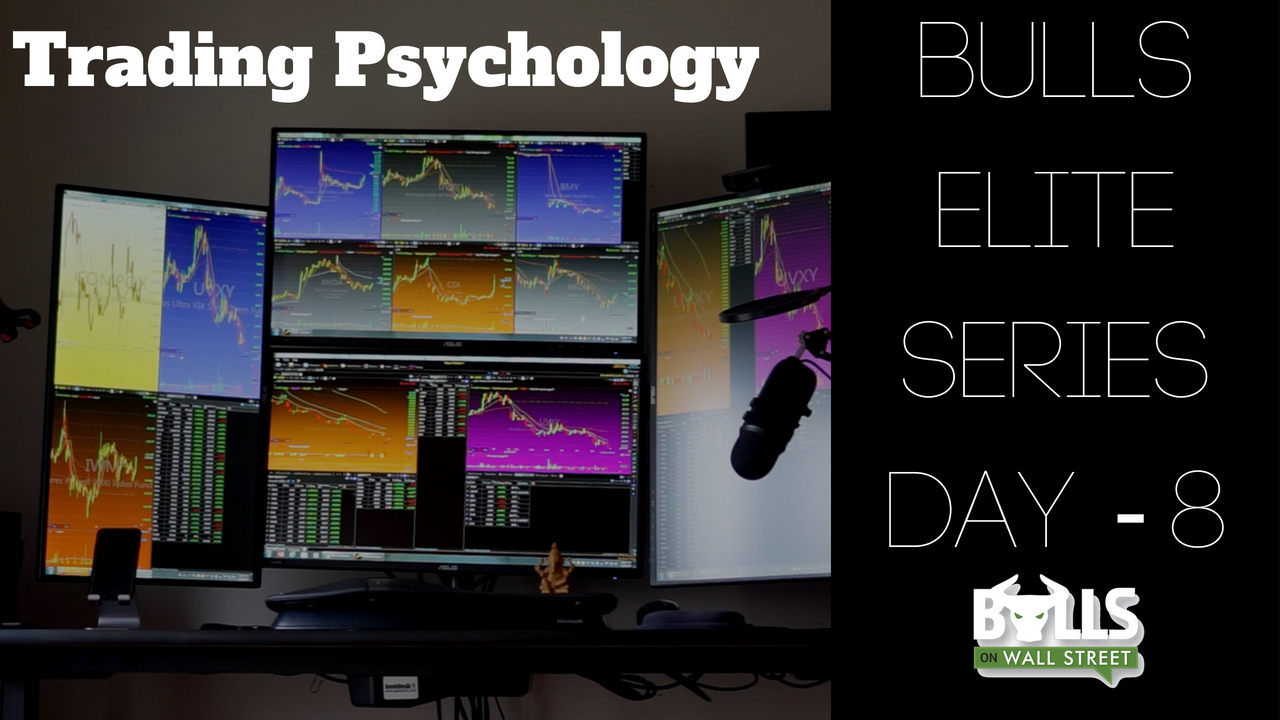
Trading psychology is the difference between a winning trader and a losing trader. Once you have developed a trading system that has an edge, the next challenge is refining your ability to execute the strategy. This is where trading psychology comes into play. In trading you are often your own worst enemy. An understanding of trading psychology will allow you to avoid self sabotage in your trading. In this article we will do an overview of the three biggest psychological obstacles for trading consistency: Fear, greed, and stubbornness. Having the presence of mind for these issues is crucial for a successful trading career.
Fear Of Missing Out
Fear manifests itself in many different forms in your trading. Fear of missing out on a big move, fear of taking a loss, and fear of being wrong are just a few different ways it hurts your trading. Fear of missing out is a huge issue for many new traders. I am sure at some point in your trading career you have seen a stock make a big move without you. You feel bad that you didn’t capitalize, and you want to jump on the next stock that moves thinking that it will be the next big winner. It ends up being a dud, and you took an unnecessary loss because you chased.
FOMO will cause you to view market opportunities irrationally because you recently missed out on an opportunity to make money. You have to control your fear of missing out in order to become a successful trader. It is impossible for you to catch every big mover of the day. You must accept that missing trades is part of the game. Make sure that every trade you take is A+, and is a setup that you have mastered. Do not let FOMO cause you to start forcing trades because you want a big winner.
Fear of Losing
Fear of taking a loss is another big issue I see with new traders. This is often occurs when trading are trading with too much size. They are afraid to take a loss because they are emotionally attached to the money they are risking. Stocks don’t just go straight up or straight down. A stock will not usually just go straight up as soon as you buy it. These traders will panic out as soon as the stock takes a little dip and sell their position. Then they will buy it again as soon as it goes up a bit, and then sell it again as it dips. They end up taking a bigger loss than they originally planned because they took tiny losses and racked up a ton of commissions and fees.
You must size your trades appropriately. Downsizing will eliminate your fear of taking a loss, because you will not be emotionally attached to the money. Downsizing will allow you to stop micromanaging your trades. You will actually end up making more money by downsizing to a position size that you are emotionally comfortable with. It will allow you to objectively see what the market is telling you about its trend and direction. Starting out we recommend not risking more than 1% of your portfolio per trade to make sure you do not trade with fear. Scared money doesn’t make money.
Greed
Every winning trade will not be a homerun. Trading for a career is about making consistent gains, not just one, overleveraged, winning trade. Greed will cause you to act irrationally in the markets because you want to make a lot of money. It will cause you to not take profits when you should because you want a big winner. You are not listening to what the market is saying. Instead you are being controlled by a certain $ amount in your head that you want to make.
The market doesn’t care about how much money you want to make. The only thing you can do is adhere to your trading rules, and follow your buy and sell signals. Do not trade to make a certain amount of money in a certain period of time. You cannot control opportunities. You can only control your ability to capitalize on the opportunities that present themselves. Hiding your unrealized PNL is a great way to minimize greed in your trading. It will allow you to view the markets more objectively, instead of trading so you can make a certain $ amount.
Stubbornness
The market doesn’t care about your opinion. The stock market is just a mechanism for displaying information. If the market is showing you that your opinion is wrong, you have to listen to it. Losing trades are inevitable in trading, therefore you always have to prepare a course of action for your trade if it turns out to be a loser. Stubbornness can cause your trading career to end in a single day if you do not cut your loss when you are supposed to.
Successful trading requires you to put your ego aside. We talked about risk management in our last blog post, and how it is another essential component of making money consistently from the market. In order to exercise successful risk management, you must control your ego, and not get stubborn about a position you have in the market. Always have a stop loss planned before you enter a trade. If you cannot prepare and accept losing trades you will never be able to trade for a career.
Sign Up For The Free 4-Day Live Course
Trading psychology is a subject that takes months and years to master. We will go into more depth in our free 4-day live course later this month. If you missed our last post of the Bulls Elite Series breaking down risk management, you can check it out here.
Reserve your seat for the free 4-day live course here.
PS if you’re coming let us know on Facebook and share this event with your friends. Click here to join our Facebook event.
[rf_contest contest=’10758′]


